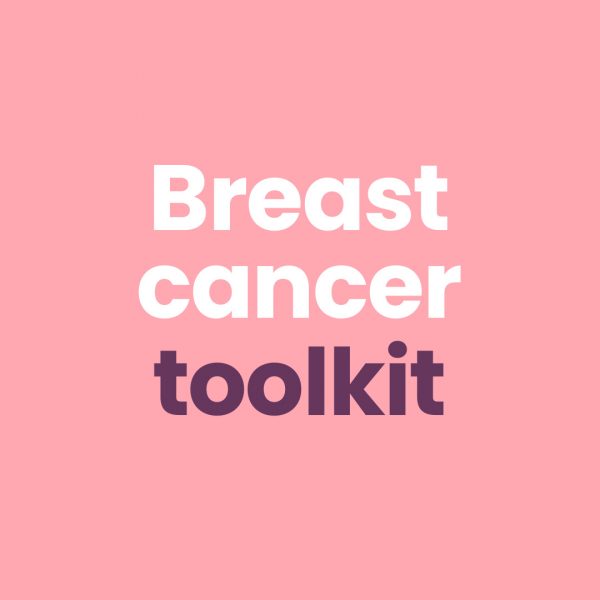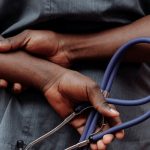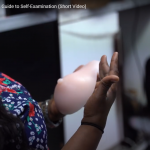How common is cancer among the BAME population?
Cancer is common in black, Asian and ethnic minority communities and there are certain types of cancer that make you more at risk. One in four black men is at a higher risk of getting prostate cancer. The risk of black women having breast cancer is also higher but the reasons are unknown.
What causes cancer?
The causes include genetics, environmental and lifestyle choices. Your lifestyle choices can put you at risk of other illnesses, whether you smoke, are an excessive drinker, are obese or have an unhealthy diet. Genetics can play a part, if your mum, auntie or grandma has had breast cancer for example, and there are traits in that family, then there is a gene that they all carry which can cause mutation in cells which then triggers the formation of cancer cells. The brca1 and brca2 gene is what most women are tested for, especially if they have such strong family links to it. If they are tested high for it, they will be given various options to minimise the risk of the cancer starting. Environmentally, this can be asbestos if it has been inhaled and people who work outside such as construction workers, who are always in the sun, can be at risk of skin cancer. The sun is another form of radiation and it is important to wear sun cream if you are black or Asian; even though we have melanin to protect us, we still have to wear the highest factor sun cream.
Can cancer be inherited?
Cancer itself can’t be inherited but the gene that causes cancer can be inherited which can cause the formation of cancer cells or can lead to the mutation of cells.
What are the most common cancer treatments?
The most successful treatments are the ones we know already, such as surgery, radiotherapy and chemotherapy. Within those treatments, immunotherapy is also effective depending on the type of cancer that people have. There are always a lot of clinical trials being done to stay on track with the best cancer treatments. What works for one person may not necessarily work for the next person, it just might not be the best treatment for them.
What are the stages of cancer and what do they mean?
It can be quite scary when hearing what stage or grade of cancer a person has. Grading indicates how much cancer has spread to dictate what stage it is at and how big the tumour is. Stage zero is when the cancer is still quite small, and surgery, chemo or radiotherapy can be used to clean it up and kill those early-stage cancer cells. Stage 1 is based on how much cancer is contained within where it is affected and if it is starting to spread or travel to other areas of the body. At this stage, it can still be quite small, like a pea size, and it hasn’t spread. Stage 2 is when it is bigger in size, but might have spread to a few areas. Stage 3 is when it is quite big and may have spread to a few areas like the lymph nodes or it may be big but is contained. Stage 4 may mean that it is big and has spread to another region in the body and there are multiple diseases too. It depends on the type of cancer and it will rely on the radiologist to detect what stage.
Can I drink alcohol whilst on treatment?
This is dependent on whether the person is having treatment to the head and neck area; this would be a definite no because, at some point in their treatment, they will not be able to even swallow water. It would cause more side effects and because of treatment side effects like mouth ulcers, it would be too harsh. For prostate cancer treatment, drinking alcohol is more accepted (if they had just one alcoholic drink per week) but is not encouraged if it affects their bladder or causes them to be dehydrated.
Will treatment affect fertility levels or sex life?
Yes, it can for some people, because they are already tired from cancer treatment but they have loved ones who have feelings too which need to be considered. Mentally, they will not be in the right mindset and won’t want to be intimate with a partner so that alone can affect sex life. For women or men having treatment down below, we talk to them about what they can have done. For cervical treatment, we encourage women during treatment to have dilators that help to stop their vaginal walls from sticking together because post-treatment, this can become problematic and quite painful. With regards to fertility, for women having chemotherapy, if they are still quite young, they may be given the option to freeze their eggs or for men to preserve their sperm. This treatment is one aspect of their life and they may decide to have children afterwards. The eggs or sperm which is preserved can then be used at that stage when they are ready or IVF treatment provides another option. You should speak to your health care professional because there are always options.
Do I need to change my diet when receiving treatment?
It depends, most likely people would be asked to change their diet if they have head and neck cancer for example. We would recommend fatty foods such as ice cream and double cream because there will come a time when they will no longer be able to eat. Their weight will drop all of a sudden. For pelvic or gynae treatment or even prostate, we advise staying away from fibre because of gas and faeces congestion build-up. But most people do find that they have to adapt their diets during treatment or choose to change their diets to improve their quality of life.
What happens if I refuse treatment?
We cannot force a person to have any treatment because it is their body and their choice. When any cancer treatment starts, it is obligatory to ask if the patient still wants to carry on with that treatment. But if a patient isn’t ready to receive treatment, we can help them psychologically or refer them somewhere else.
Can diet increase the likelihood of cancer?
A lot of processed food can increase the chances of colon cancer and a healthy balanced diet is recommended with plenty of fruit and vegetables. Food that is high in fat and is highly processed can increase the risk of cancer.
How will my partner feel during and after treatment?
They can feel fine if it is their first radiotherapy treatment for example, but treatment can be quite daunting. They can feel tiredness or sickness after chemotherapy, but it very much depends on each person. Toward the end of their radiotherapy, they will notice they get more tired, can’t eat or sleep properly or even pass urine normally. They will have a consultation where side effects are discussed. Just being there and supporting your partner is suggested, and listening to them. For some patients with second and third diagnoses, there is no skill to learn, if you want to support your partner, it is just important to be there for them.
Can mental health be affected during cancer treatment?
Cancer patients can suffer mentally at the thought of cancer coming back. No one really talks about this and it is an awful place to be when diagnosed with and recovering from cancer. Regaining a sense of normality is key but patients differ; whilst one person may still be in bed recovering, another is active again walking their dog or grocery shopping within two weeks. Your body needs to recover and that is a waiting game.
Other questions?
If there are any questions that we haven’t covered here, please contact us and we will reply back to you.





